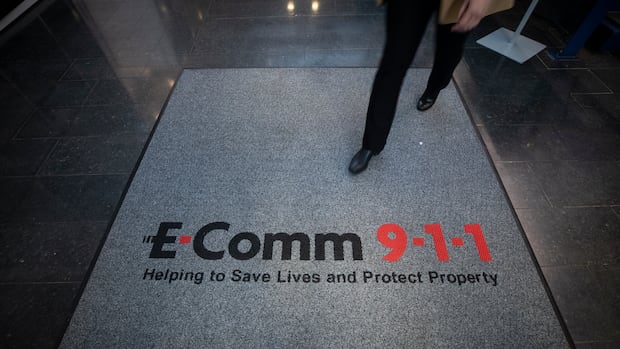Lifestyle
B.C. Responds to 911 System Review, Urges Enhanced Oversight

A new report highlights the need for clearer oversight of the 911 system in British Columbia. This recommendation is part of two independent reviews that examined the province’s emergency communication dispatch services, managed by E-Comm (Emergency Communications for British Columbia Incorporated). Commissioned by the provincial government in December 2024, the reviews were initiated due to rising concerns from municipalities, law enforcement, and emergency service providers regarding escalating costs and a lack of transparency.
The consulting firm Ernst and Young released its findings on November 7, 2025, providing an in-depth analysis of how E-Comm operates and suggesting strategies for future service delivery models in emergency communications. While the reports affirmed that the 911 service effectively serves British Columbians, they also identified a significant “lack of well-defined, comprehensive and cohesive service delivery model for emergency communications.”
B.C.’s emergency communication system has evolved since E-Comm’s inception in the 1990s, initially designed to handle emergency incidents primarily in the Lower Mainland. The organization has since expanded its services to police and fire calls across most of the province, necessitating updates to align with national 911 standards. These updates will enable functionalities such as texting and video sharing for callers.
The reports outline 25 recommendations aimed at enhancing E-Comm’s governance and organizational structure, enabling better delivery of emergency communications in the future. A key recommendation involves the province clearly defining its role in the emergency communications sector, potentially assuming greater responsibility.
Public Safety Minister Nina Krieger indicated that the province would evaluate all recommendations but emphasized the importance of E-Comm implementing the suggested changes first. She expressed hope that these changes could alleviate the concerns of municipalities regarding rising costs. “The priority is for E-Comm to strengthen its financial, operational, efficiency and governance practices to get a clear picture of the true cost of service,” Krieger stated, aiming to ensure the sustainability of local government expenses.
Concerns regarding costs remain a focal point. Mayor Deena Beeston of Ladysmith expressed disappointment with the findings, stating that she anticipated more concrete strategies to address municipal worries. Ladysmith, along with nine other municipalities on southern Vancouver Island, voiced their concerns in January after costs associated with using E-Comm were shifted to local governments. These municipalities have advocated for a telecommunications levy to help fund 911 services through cellphone and internet bills.
Currently, E-Comm’s funding primarily stems from service fees charged to municipalities, which are often collected through property taxes or landline levies. Beeston highlighted the challenges posed by the declining use of landlines, noting, “We’ve lost a lot of the 911 funding that used to come through our home phone lines because people just don’t have our home phone lines anymore.” Without revised funding methods, she warned that her town would likely face increased property taxes.
The reports touched on various funding options, including a telecommunications levy similar to those in several other provinces, but they did not make specific recommendations about implementation. Minister Krieger acknowledged the possibility of a levy but stated that discussions were not yet advanced.
The union representing emergency communication professionals in British Columbia, CUPE 8911, welcomed the reports but expressed that they did not adequately address their core concerns. Union local president Donald Grant urged immediate action on service standards, highlighting the critical nature of timely responses to emergencies. Grant emphasized, “Each second that passes is so absolutely critical,” advocating for a standard that mandates every call be connected within 15 seconds. Currently, 98 percent of calls are answered within five seconds.
As British Columbia seeks to refine its 911 services, the recommendations from these reports will play a crucial role in shaping the future of emergency communications in the province.
-

 Science3 months ago
Science3 months agoToyoake City Proposes Daily Two-Hour Smartphone Use Limit
-

 Health3 months ago
Health3 months agoB.C. Review Reveals Urgent Need for Rare-Disease Drug Reforms
-

 Top Stories3 months ago
Top Stories3 months agoPedestrian Fatally Injured in Esquimalt Collision on August 14
-

 Technology3 months ago
Technology3 months agoDark Adventure Game “Bye Sweet Carole” Set for October Release
-

 World3 months ago
World3 months agoJimmy Lai’s Defense Challenges Charges Under National Security Law
-

 Lifestyle3 months ago
Lifestyle3 months agoVictoria’s Pop-Up Shop Shines Light on B.C.’s Wolf Cull
-

 Technology3 months ago
Technology3 months agoKonami Revives Iconic Metal Gear Solid Delta Ahead of Release
-

 Technology3 months ago
Technology3 months agoApple Expands Self-Service Repair Program to Canada
-

 Technology3 months ago
Technology3 months agoSnapmaker U1 Color 3D Printer Redefines Speed and Sustainability
-

 Technology3 months ago
Technology3 months agoAION Folding Knife: Redefining EDC Design with Premium Materials
-

 Technology3 months ago
Technology3 months agoSolve Today’s Wordle Challenge: Hints and Answer for August 19
-

 Business3 months ago
Business3 months agoGordon Murray Automotive Unveils S1 LM and Le Mans GTR at Monterey









